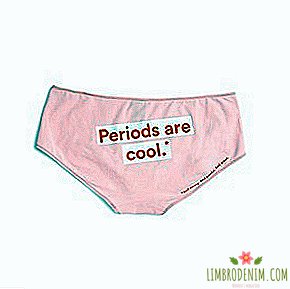See: Archaic sexism in Russian advertising
We have already addressed the topic of sexist tones in advertising - a story that, it would seem, was supposed to remain in the middle of the last century. Surprisingly, they continue to amaze and amuse everyone with images from the advertising of the 50s, while there are plenty of similar examples in the modern advertising industry. From video to video, advertising of popular products refers us to gender stereotypes that are exploited with pleasure, and, moreover, extremely clumsy.
Advertising, undoubtedly, should work, however, advertising, which clings solely to its blatant rudeness and offensive promise, is not a good marketing move, but a banal manifestation of lack of professionalism. Any mass product has a responsibility to its customers - do no harm. Unfortunately, even large corporations are not able to adhere to such a simple rule, whose PR people are too lazy to spend an extra hour trying to understand what kind of idea they are broadcasting. Let us turn to the most popular topics, which show what is “wrong”, using the example of popular advertising, which probably has covered your eyes.

Objectification of women
Sex is for sale, perhaps the best in the world: beautiful girls with big breasts from all sides are giving us loans, houses, cars — anything really. Companies, without hesitation, stick a conventional beauty on the poster - and voila! Now the ad will definitely pay attention. It's amazing that no one thinks that such an attitude can inflict as much damage to the image as it does good: so many women, and just adequate people, regardless of gender, do not like this approach to advertising a product. This approach is used by many, from MTS to ice cream.
Some companies finally blows the head, such as, for example, AlfaStrakhovanie, who decided not to waste money and equate a woman to a car. I have never wanted so much to hate the grammatical category of the genus in Russian, which makes people think that such a pun is a place on billboards throughout the city. On the Moscow OFAS website, as a result of complaints filed against this outrage, a survey was conducted to determine whether to initiate criminal proceedings against the insurance company for violation of advertising legislation.
Not surprisingly, insurers came out dry with water with their saving 51%. Advertising in the city, though, thank God, I searched. “Bought a Japanese girl? Insure her without ceremony!”, Says one of the 7 posters. Insure yourself, dear AlfaStrakhovanie, if you know what I mean. At the same time, experiments where men behave as women usually do in commercials cause discomfort to those who look - it seems like a good time to think about why.
Gender stereotypes about men
The recent campaign Dove Men is trying to deal with the fact that "really" corresponds to the label "real man." Not bad, in general, the idea is instantly broken about, it seems, the physiological inability of Russian marketing to avoid even obvious stereotypes. To begin with, the desire to stick a person to any title is incredibly vicious, a person is not determined by any one stupid phrase. Dove, no matter how hard they try to speak on the actual topic of the distorted perception of our bodies and roles in society, as a result cannot escape from the fetters of populism.
The “female” video about the “beauty patch” as a result looks frankly offensive, the new “male” advertisement that can be seen in the prerolls on YouTube has gone. Its vulgarity does not consist in exposing sexuality or exploiting sexuality, but in the fact that, trying to escape from unpleasant perceptions about men, the heroes of advertising slide into the same banality with which they began. "Men" from advertising are stereotyped to stupid - none of them would like to either believe or get to know them better. Even if there was irony there, it has not been seen for a long time, because the sad plausibility rolls over - from unfunny jokes I want to cry more. It turned out not "real" men, unpleasant characters, whose maxims like "A woman should have more! Breast more!" harm to both men and women is no less than the performances that they list in the title video.

Legalization of inequality
The project "Probok.net" is the best illustration of the saying "We wanted the best, but it turned out as always." What did the creators expect when photoshop ram next to the phrase "Did not miss the girl?". Do they live in Russia, so as not to know that every woman has ever heard a "sheep" in her address, especially if she is driving? There are about a third of female drivers in Moscow, but the attitude towards them is still as if the statistics, saying that 65% of accidents are caused by men, are reversible. On the site of the expert center "Probok.net", which launched the campaign against traffic offenses, a text was published, where men are urged to be more tactful to women drivers on the road and not to behave rudely.
We completely agree with the call for polite attitude all depending on the gender of drivers towards each other (and pedestrians) on the road, but the "game with the ram" served them a disservice - a spectacular move only irritates everyone, and in addition insults both men and women . Moreover, pay attention to the second part of social advertising, in which another problem of our patriarchal society is hidden: “Now it will spoil the day for its boyfriend,” because it is obvious that you can explain politeness to men not with the help of common sense, but only with the help of other men and mentions of discomfort they may experience. How not to remember the brilliant sketch of Ellen DeGeneres about Bic pens for women.
Demonization of female physiology
Social stigmata associated with the body and imposed on women in the modern world are known to every child: sweat, hair anywhere, except for the head, bad mood and lack of a smile, and, of course, menstruation. This is not customary to speak directly, but it is accepted to pretend that they do not exist. Indeed, women of the whole world should feel defective for being biologically able to carry a new life in themselves - how could we even think otherwise? The need to sell exactly your product led advertisers to a win-win option: if we cannot explain how our product is better, we will intimidate our customers to such a state that society itself will begin to reprove them, forcing them to buy it. The girl in the advertizing Always doubts whether she can get into a taxi with her friends during her periods - as if there is some kind of caste system in our society that forbids it.
The madness of this whole scheme is obvious: the negative tone of the feed has brought us to the point that we are now trying to win our right to be ourselves, even at a biological level. If it seems that such advertising is harmless, look at at least in the comments on YouTube: viewers are outraged that singer Victoria Daineko advertises such an "abomination". An abomination. With this word, man describes the natural process by which he was once born. Isn't it a sign that Always it’s time to take an example from HelloFlo and stop imposing on women and, more importantly, on young girls, that "these days" are not a priori natural course of things and they shouldn’t show their nose without these pads. They, of course, are not alone in their ignorance: Rexona in zero compared women who were sweating with pigs, and Veet not so long ago caused a wave of indignation around the world because of advertising with the slogan "Do not risk appearing to be a man!".

Gender stereotypes about women
It seems that powder and mayonnaise are the main pillars of the modern advertising industry. It seems that they are served mainly with the help of images of the family and women: who, after all, washes and cooks, if not an obedient hostess? Men are engaged in this only in a situation of force majeure and in confidence, according to advertising. The video, which is not separately in the network, but which everyone saw on YouTube at the time of the Sochi Olympics: an advertisement for the powder, where the mother is indignant that her daughter has ceased to be an “angel” and started playing hockey. Now, the advertising heroine thanks the powder for helping her to wash her uniform (how often can a little girl get dirty on the ice, who still doesn’t sweat properly?), And dreams that he would also clean the brain so that it could see and return to pink a pack. The presentation of the idea that gender stereotypes should be hammered into children as a matter of course does not raise questions from the authors of this advertisement.
There are many examples, including the flirtatious wife, who was “caught” on the fact that she bought a new thing without asking. Mayo does not lag behind: "Sloboda" believes that everything should be traditional and according to Domostroi. The creators have no doubts about the tactfulness of the character of a little girl who asks her brother's girlfriend: "Do you sleep together? Are you a bride?" The heroine of the girl pouts herself, unable to answer whether she is a bride. Because independent young people have no right to sleep with each other (and there is mayonnaise), without being engaged, obviously. If you believe such advertising, then a woman should ideally merge into the stereotype of obedience, the desire to get married and not go beyond the "purely female" hobbies. U TV channel fully supports this approach - in its advertising campaign, whose posters flooded the subway last year, the heroines “do not want politics,” sports and bandits because they are girls. The disastrous tendency to exploit the image of "I am a girl, I don’t want to think" or "I am a girl, I can" is stubbornly supported by many "female" franchises. After this, how can we talk about equal rights at work and in everyday life, when women themselves begin to believe that such self-humiliation is in the order of things?




